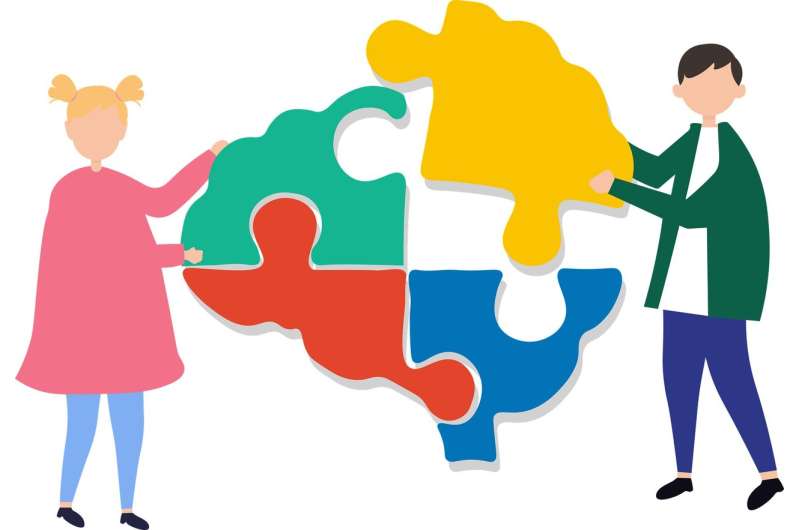Credit: Pixabay/CC0 Public Domain
Researchers have been investigating an intriguing theory that links autism to having an 'extreme male brain' – but have found it is not that simple.
James Cook University researcher Dr. Liza van Eijk conducted the study, in collaboration with Associate Professor Brendan Zietsch at The University of Queensland.
Dr. van Eijk said autism spectrum disorder (ASD) is four times more common in males than females and has been linked to male-typical behavior.
"Men score on average lower on empathy tasks than women, while adults with ASD, irrespective of their sex, score the lowest.
"Conversely, men score on average higher than women on an attention-to-detail task, while individuals with ASD score the highest," said Dr. van Eijk.
She said there are several differences in the regions of male and female brains, in both size and shape, so the question arises whether ASD is related to a more male-typical brain, a popular theory known as the 'Extreme Male Brain' hypothesis. But this theory had not been subject to rigorous, direct tests.
"We derived a data-driven measure of individual differences along a male–female dimension based on sex differences in subcortical brain shape, or brain maleness. Consistent with the Extreme Male Brain hypothesis, we found a higher mean brain maleness score in the ASD group than in controls," said Dr. van Eijk.
In addition, brain maleness scores showed positive associations with autistic symptoms.
But once the researchers accounted for differences in brain size, the difference in brain maleness scores between the ASD group and controls disappeared, and no association between brain maleness with autistic symptoms remained.
Dr. van Eijk said large longitudinal studies are needed to unravel ASD-related brain and behavioral changes and to examine whether these changes are associated with sex differences, in particular during early development.
More information: Liza van Eijk et al, Testing the extreme male brain hypothesis: Is autism spectrum disorder associated with a more male‐typical brain?, Autism Research (2021). DOI: 10.1002/aur.2537
Journal information: Autism Research
Provided by James Cook University























